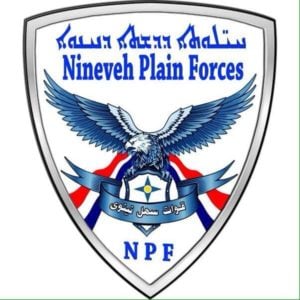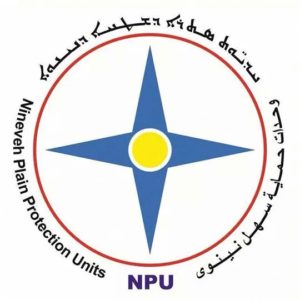With two new armed forces opposing the Islamic State in Iraq and Syria (ISIS), Iraqi politics and security continues to get even more complicated.
The rapid advance of ISIS through northern Iraq last summer upset an uneasy balance in Mosul, the Nineveh Province, and the Kurdistan Region (KR). For years, the Christians of northern Iraq – alternately referred to as “Chaldeans, Syriacs, and Assyrians” or “Assyrians” – have had internecine political divisions. One of the key questions in the post-Saddam Hussein era has been whether their best future is in cooperation with the Kurdistan Regional Government (KRG) or with aspirations of their own autonomous region in a federal Iraq.
Last summer, ISIS took over and terrorized much of the Nineveh Province, home to many of northern Iraq’s Christian and Yazidi minorities. Slaughter, forced conversions, enslavement, and a mass exodus followed. The Iraqi Army infamously fled, leaving behind stores of American weapons and causing hundreds of thousands to flee their homes. The Kurds’ own defense forces, the peshmerga, were initially caught unprepared and retreated as well.
Now some Christians – many of whom have recently fled from ISIS, others from earlier violence around Iraq, and others from the KR – have begun to take more responsibility for their own self-defense. But they remain internally divided, and there are now two new Christian self-defense forces.

NPF patch, from SyriacsNews
The Nineveh Plain Forces (NPF) are part of the Kurdistan Region’s peshmerga forces. The goals are to repel and roll back ISIS, and then to remain as protection forces of the Chaldean-Syriac-Assyrian areas after ISIS has been defeated and the refugees (IDPs, mostly) from Nineveh Plain can return home. (The dispute over the correct role, if any, for KRG security and services in the “disputed areas” of Nineveh remains contested.)
The Nineveh Plain Protection Units (NPU) has the same goals – to retake the territory from ISIS and provide security thereafter. The NPU is formed from the Assyrian Democratic Movement (ADM, or ZOWAA) in Iraq and other parties that seek Assyrian autonomy. The NPU is founded with the help of Assyrian diaspora groups like the American Mesopotamian Organization (AMO) and US and European supporters. According the Aleteia, a Catholic evangelization group, AMO’s chaiman David Lazar said the NPU is being trained by Americans, without specifying if or how the U.S. military is directly involved.
Recent U.S. Congressional action might add to this mix. The 2015 National Defense Authorization Act

NPU patch, from Wikipedia
authorized the Pentagon, coordinating with the State Department, to “provide assistance, including training, equipment, logistics support, supplies, and services, stipends, facility and infrastructure repair and renovation, and sustainment, to military and other security forces of or associated with the Government of Iraq, including Kurdish and tribal security forces or other local security forces (emphasis added, page 671).” This was clarified (page 205-206) to include “local forces that are committed to protecting highly vulnerable ethnic and religious minority communities in the Nineveh Plain and elsewhere from the ISIL threat.” The extent to which the U.S. government will support NPF, NPU, or both, will be important not only in the fight against the Islamic State but also in shaping local political and security questions.
The Christians in northern Iraq remain divided between those that seek recognition and an autonomous region of their own, and those that see more hope in working with the Kurds. The extent of cooperation between these new forces in pursuing their shared military goals is yet to be seen. ISIS has destroyed Christian communities in areas that have hosted Christianity for nearly all of its 2,000-year history. In the face of this great crisis, to remain divided and to expand those divisions from politics to new armed forces risks worsening already-unfortunate realities. These divisions might help preserve some of the various Christian communities, or hasten the exodus and genocide. Renewed violence from ISIS beginning with the coming spring’s warmer weather may give us our first indications.